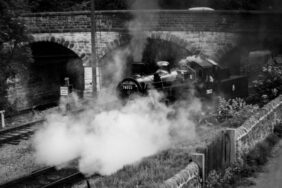In 1947 the winds of partition rose up like a maelstrom, furiously whipping through the Indian subcontinent. They left death and destruction in their wake. People were forced to abandon their lives and lands. In that deciding hour, they needed to vow allegiance to either India or Pakistan for the combined land they called home, ceased to exist.
I was one of those people. I was eight.
****************
14th AUGUST, SIALKOT, PAKISTAN.
“Daarji*…Daarji…”
The wooden door of the courtyard crashed open. Usman Chacha*, our neighbour, burst in and panted to a stop in front of Bauji*. Doubled over, a hand clutching his midriff, he sputtered, “Run…you must…run. They are…. coming. You’ll…killed.”
“What?”
Catching his breath he continued, “Daarji, you have to go now. It has started.”
Bauji’s face paled. “Already?” he asked, his voice a hoarse whisper.
“Daarji, the city is burning. Communal riots have broken out. Muslims are saying it is retribution for the treatment meted out to their brothers in India. They are massacring Hindus and Sikhs, doing unspeakable things to the women. Go now before it’s too late. I beg you.’ Usman Chacha pleaded.
He was more family than a neighbour.
‘I will drive you to the station. There are special trains which will take you across the border. Go to India, to safety. Go now!”
For weeks now in the agitated corridors of our town, there had been rabid whispers that Hindus and Sikhs would be hunted. The situation now was grave enough for Bauji to instruct Biji*, “Gather all the valuables. We leave within the hour.”
I tugged at Biji’s hand and asked, “Where are we going?”
In a voice tinged with sadness she replied, “Home, to India.”
We left soon after. I noticed Bauji and my brother strap their Kripan’s* under their clothing. Usman Chacha ferried us to the train station where we bid him a teary farewell. By noon, we managed to board an India bound train, bursting at its seams. We huddled together, holding hands. It was then that I felt Biji* nudge my arm.
“Keep this,” she said handing me a small sachet.
“What is it?”
“It’s a magical powder. I got it from Hakimji*. Eating it will make you invisible,” she smiled at me and winked. “Take it if the train is boarded by fanatics. Promise me.” For the first time in hours, I felt Relieved. If Biji was smiling, it meant that all was going to be okay.
I promised.
In the early evening, we were still a distance from the Indian border when I felt the train jolt and grind to a halt. Cries of ‘Pakistan Zindabad’ rent the air and our bogie, second from the engine, was beset by a mob of men wielding knives, swords, and sickles. Cringing at the maniacal hatred I saw in their eyes, I looked at Biji. Her face had grown ashen. I saw a silent look pass between her and Bauji. Then she turned to me, kissed my forehead and indicated at the sachet. I consumed it immediately.
Within seconds I felt an icy cold seep into my bones. Alarmed I looked at my hands. They were rapidly evanescing. I watched in disbelief as in under a minute I became invisible.
“The powder is magical,” I thought.
What happened next defies the bounds of barbarity. Helplessly, I watched as the mob charged first at the men, butchering them. A few who tried to fight back were meted a gorier death than the others. The women came next. None were spared including my Biji. Like a pack of feral wolves the mob set upon the hapless women, hacking at their bodies and looting jewellery. The ones, who pleaded for mercy, were subjected to the added humiliation of nudity as the men tore off their clothing and clawed at their bodies in search of hidden ornaments.
Shocked I scuttled to a corner of the compartment wearing my invisibility like a cloak. Petrified lest a sound escapes and alert the assailants, I clutched a hand to my mouth. I don’t remember how long I sat like that. I do remember that the rising bile in my throat threatened to spill over. But, somehow I held it in. An eternity seemed to pass before satiated of their bloodlust; the mob disembarked and moved on to the next bogie.
I crawled to where my massacred family lay. Their lifeless eyes stared back at me. The bile rose up again. I vomited. Keening, I yelled for help but none arrived.
As the sun sank, the sounds of the carnage grew fainter as the mob moved farther. I sat, shocked but waiting. I knew Biji would want me to make it home. Much later, post-midnight I crawled over trampled bodies and climbed down the train. Spying a copse of trees in the distance, I ran and hid.
A few hours passed. I dozed off till dawn broke. In the bleak light, I saw the train burning. Bleeding red, it looked like it had been laid on a pyre.
At first light, I got up and started walking towards the India border, following the tracks, as Biji would have wanted. I walked for miles. The sun ascended and beat down. My invisibility could cloak me from neither the unrelenting heat, nor the gnawing hunger. My parched throat cried to be slaked in the stifling heat. But, I knew I would not be safe until I reached India. So, I trudged on in my cracked, bleeding soles, one painful step at a time.
********************
15th AUGUST, ATTARI*, INDIA
When news of the ‘blood train’*, finally reached Attari, it was met with a cadaverous silence. What could be done? It was over. There were no survivors. All loved ones had perished in the senseless tragedy.
All but one – Me.
To this day, people of Attari recount the tale of the girl who on the first eve of an independent India appeared on the tracks, out of thin air.
*******************************
AUTHOR’S NOTE
This story is inspired by true events. Although I have given the actual incident a fictional spiel but the family is real, as is the sachet mentioned. I would like to extend my gratitude to Dr. Shivani Salil. Reading her ‘Hiraeth – partition stories from 1947’ brought the repressed memory of this incident to fore and that inspired me to write it.
GLOSSARY
Daarji – It is a term of endearment arrived at by abbreviating “Sardar ji“, which is the common honorific and public form of address enjoyed by all Sikh males.
Chacha – paternal Uncle
Bauji – Father in Punjabi
Biji – mother in Punjabi
Kripan – The kirpan is a sword or small dagger, originating from the Indian subcontinent, carried by Sikhs.
Hakim – a physician using traditional remedies in India and Muslim countries
Attari – The railway station is located in Amritsar district in the Indian state of Punjab and serves Attari and the Wagah border with Pakistan. In May 2015, Government of Punjab changed the name of station from Attari to Atari Shyam Singh railway station after Sham Singh Atariwala who was general in the Sikh Empire.
Blood train – a term coined by Nisid Hajari an Indian-American writer, editor and foreign affairs analyst. He uses the term blood train in his book “Midnight’s Furies: The Deadly Legacy of India’s Partition” when he says – Trains carrying refugees between the two new nations arrived full of corpses; their passengers had been killed by mobs en route. These were called “blood trains”: “All too often they crossed the border in funereal silence, blood seeping from under their carriage doors.”
***
Photo By: Richard Horne








